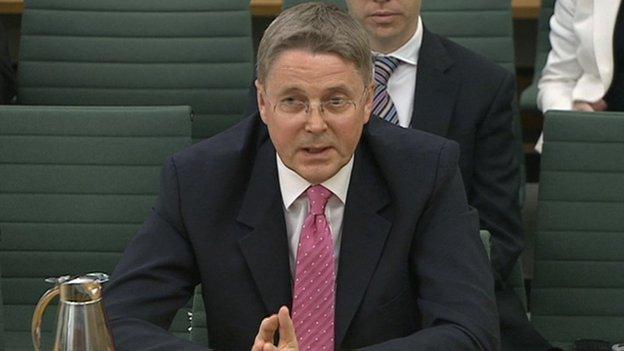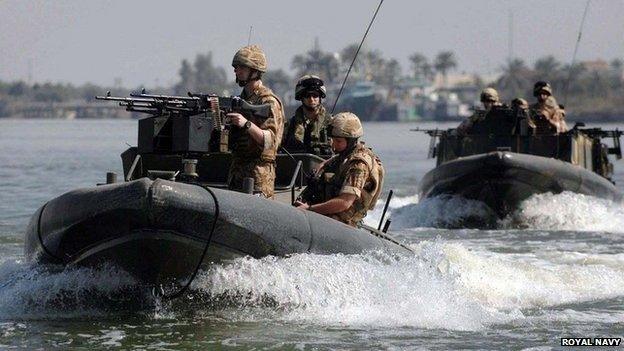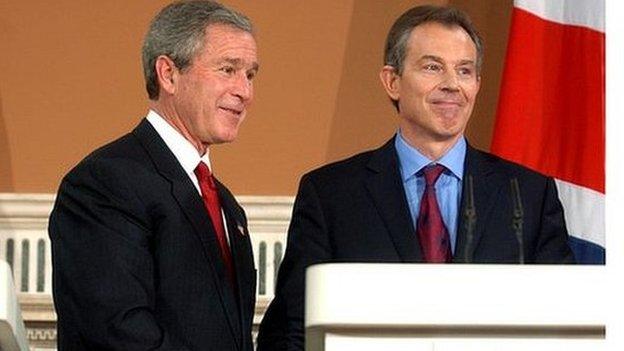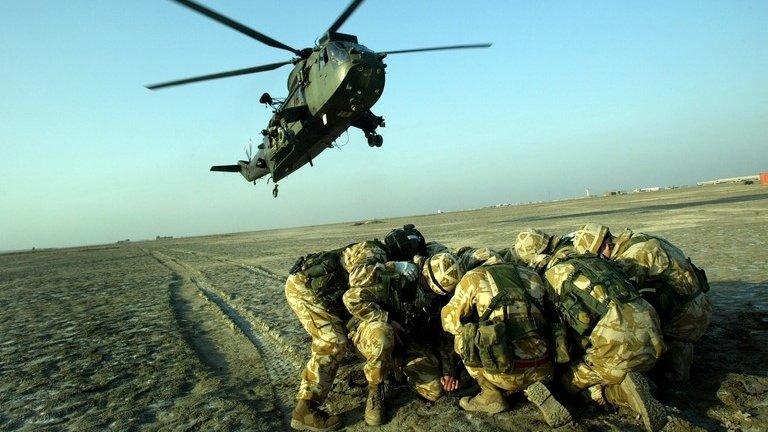Iraq inquiry will tell 'whole story' insists Heywood
- Published

Sir Jeremy said it was up to the inquiry to decide when it published the report
The Iraq Inquiry report will "not be a cover-up in any shape or form", the UK's top civil servant has insisted.
Sir Jeremy Heywood told MPs that the report would be "more transparent" than people were expecting and would include material that would not normally be disclosed "in a million years".
The cabinet secretary said the inquiry was "happy" with the documents it could publish after a "delay of sorts".
However, he would not say when the report would finally be released.
Critics have expressed concerns that the inquiry, which began its work in 2009, will not publish its long-awaited report into the 2003 invasion and its aftermath before next May's general election.
Security protocols
As the most senior civil servant in No 10, Sir Jeremy has the final say over what declassified material can be published alongside the report.
Appearing before the Commons Public Administration Select Committee, he said this had been a huge task and the ultimate report would be an "immense work".

The inquiry is looking at the decision to go to war and UK involvement in Iraq until 2009
"There has been a delay of sorts as we processed tens of thousands of requests for declassification of very complicated and sensitive documents," he said.
"I don't think that has held up the inquiry. It is a very difficult thing. The controversy around this continues today. It is very important that the whole story is told.
"So we have tried our level best to break through normal conventions and the legal requirements and the international relations and the nine different categories that the original protocols suggested might be a reason for not publishing material - we have had to work through all of that in good faith as fast as we possibly can to try and make sure the whole story is laid bare."
He added: "I believe (inquiry chairman) John Chilcot is happy on where we have got to on that point."
Blair-Bush letters
In May, the inquiry panel said it had reached agreement on what it could refer to after a stand-off over the inclusion of correspondence between former prime minister Tony Blair and US President George W. Bush in the year running up to the invasion.
The inquiry is expected to publish "gists" and selected quotes from their exchanges rather than full transcripts or notes of talks.
Questioning Sir Jeremy, Labour MP Paul Flynn said the families of the 147 UK service personnel who died in Iraq deserved better and that it was vital that the full truth of what happened was known to avoid similar "terrible mistakes" happening in future.
"We can't excuse this just because of protocol and delays," he said. "We have had four years of delay which has helped only those who want to hide the truth."
But Sir Jeremy said he believed the report, when finished, would be a "very full account" of events.
"I am absolutely confident that the finished report will be as transparent as it needs to be... I have spent many personal hours and months trying to maximise the extent to which he can publish this material that normally would not be published in a million years.
"I can understand people's frustration but I think the report... will be more transparent than you are expecting and I don't think in any shape or form it can be called a cover-up."
- Published29 May 2014

- Published27 May 2014

- Published17 May 2014
